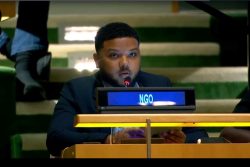Every morning, the sun rises above a newly rested world. As the sunlight spreads itself like a blanket over our lands, flowers unfurl, people awaken and shimmering drops of dew disappear into the morning in the form of invisible mist. The sunlight nourishes us through its very warmth and splendour. However, it also gives us an extraordinarily unique power – the power to grow food.
Our planet is filled with creatures of all kinds. There are living things that hunt other animals for food, there are those which consume plants and then there are those which are capable of converting sunlight and water into their own form of food.
At the very beginning of our existence, our ancestors learned the art of using sunlight to grow food crops. Today, human beings are different in the fact that most of us neither hunt nor grow the food that we eat, but have subscribed to a unique system that runs on a combination of natural and man-made processes. This system has been engineered with the intent to ensure that all human beings are fed. In fact, the system does produce enough food to feed everyone on the planet. Yet, we find ourselves defeated by the appalling fact that at least one in 11 people is left hungry every single day.
Today, we can purchase and use meats that have been imported all the way from Japan. On our tables, we can find cheeses that were prepared in Europe, fruits that were grown in North America and grain that was grown in our own country. We have even begun to share and adopt new methods of cooking and preparing food – so much so that we can tour the entire world simply through the dishes we eat during the course of a day. As such, food is not just a necessity to mankind. It is tradition and a mark of globalisation.
So, why is it that there are people suffering from starvation and undernutrition every single day when we collectively produce enough food to feed everyone in the world? Why is it that while some have the opportunity to enjoy foods from all over the world, there are others who do not have access to a single meal?
The answer to this dilemma takes the form of a complex web of factors. Climate change, conflict, poverty and other socio-economic factors have stolen nourishment from members of our world. It has deprived them of a basic need which others have in abundance.
Issues like world hunger are vastly complicated. These issues have sprouted roots that burrow deep into the very heart that sustains society. It is difficult to remedy these problems over the course of a single discussion, but we can most certainly become closer to achieving such a goal by making small changes in our own daily choices.
For instance, the simple act of choosing to eat more plant-based foods and less animal foods can contribute towards saving water and food that could be used to sustain human beings. Purchasing local foods and produce as opposed to imported ones and preparing or consuming foods with minimum wastage can also help you play a role in mitigating the enormous issue of world hunger.
Great distances are covered through small steps. The choices we make can gradually help to make our world a better place.










